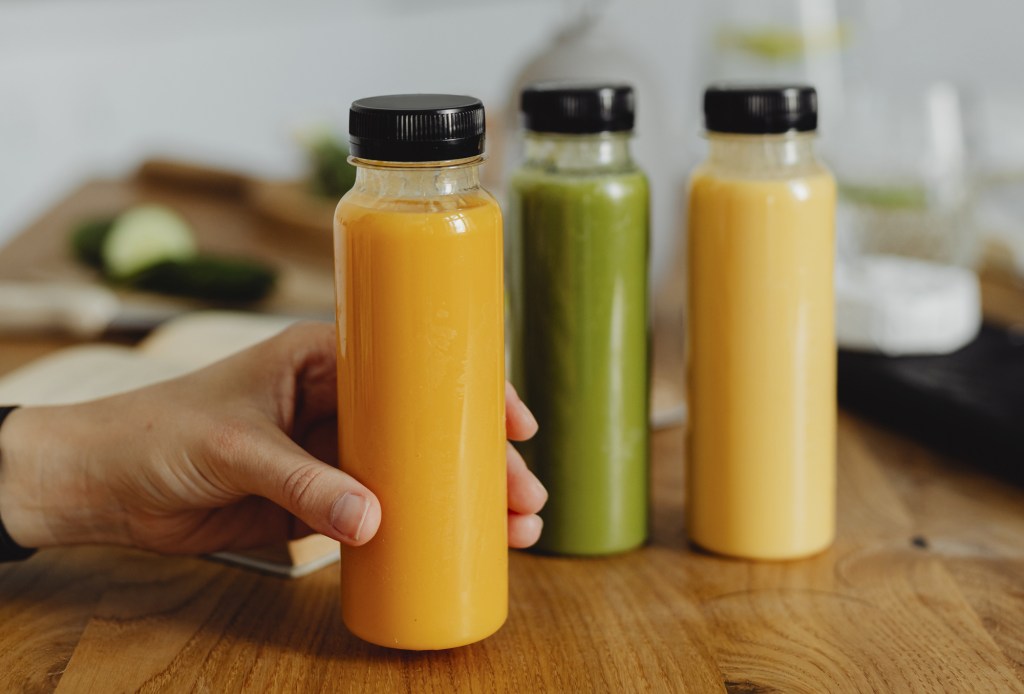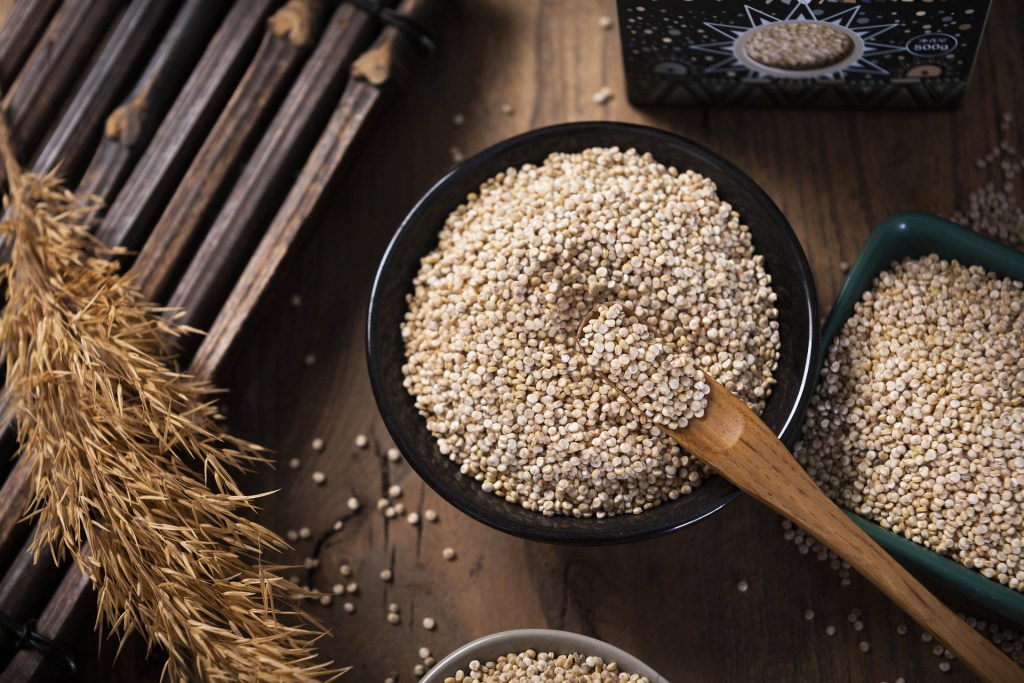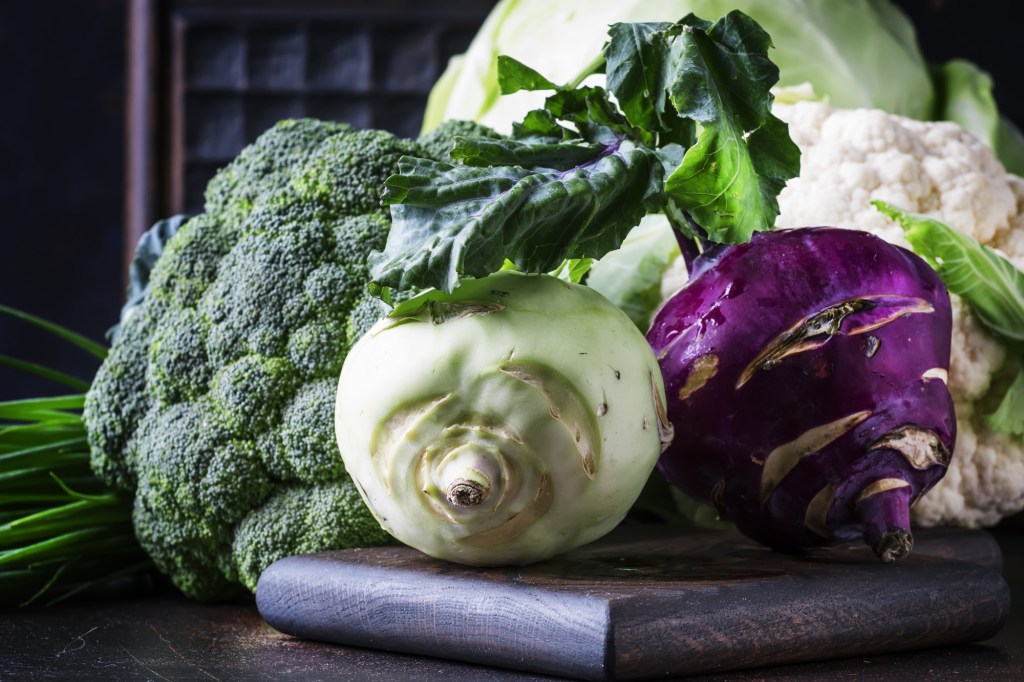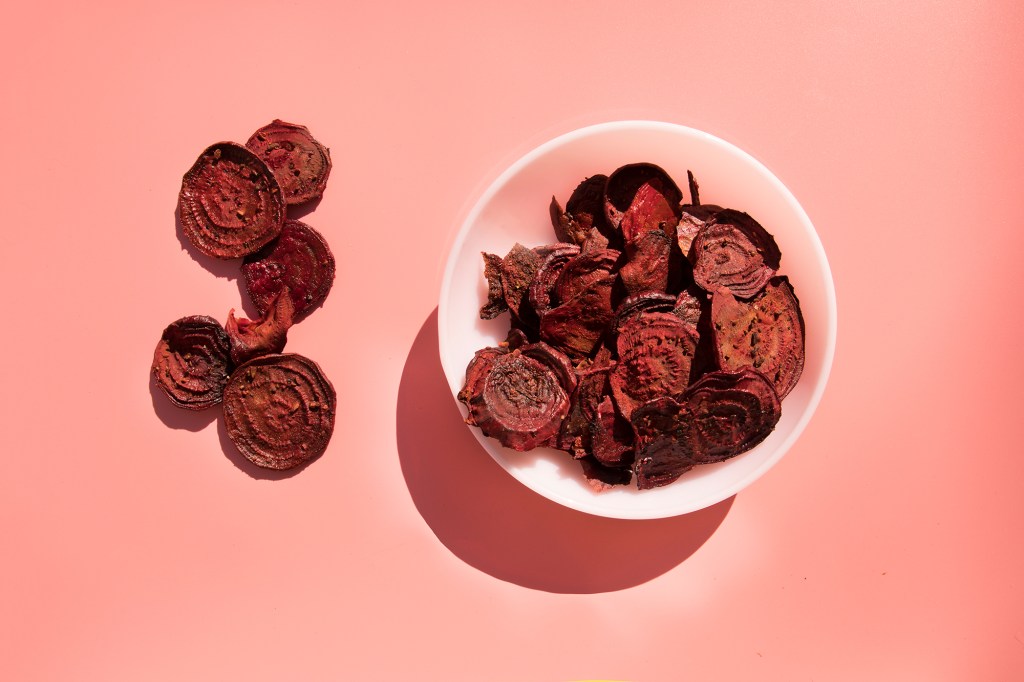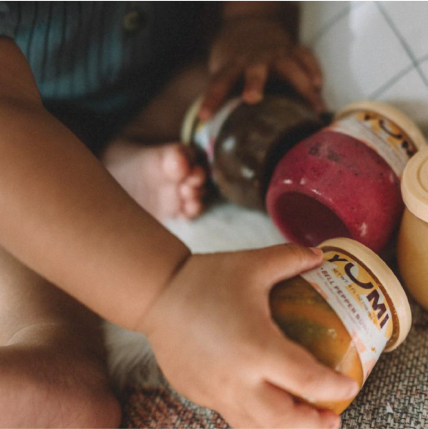Your cart is currently empty!

This is a Food Fight
It’s Time To Set Standards For Baby Food
Yumi is the first baby food company to sign the Baby Food Safety Act of 2021, which calls on the FDA to impose safety requirements on infant and toddler foods. Learn more about why we’re committed to reducing heavy metals in all baby food products.
What You Need To Know About Heavy Metals in Baby Food:
2. Why Are Babies So Vulnerable?
1. What Are Heavy Metals?
Key Takeaways: A heavy metal is a metal known for its toxicity. Arsenic, lead, cadmium, and mercury are amongst the most common found in food products. A 2021 Congressional Report recently warned consumers of these and other toxins in many popular retail brands for babies and toddlers. While trace amounts may be in our water and air, there is scientific evidence that babies are especially vulnerable and regular exposure, at even moderate levels, can negatively impact neurological development.
The Most Recent News And Reports
The 2021 Congressional Report
In February, The US House of Representatives Subcommittee on Economic and Consumer Policy released a report on Heavy Metals in Baby Foods – specifically arsenic, cadmium, lead, and mercury. The report found that “commercial baby foods are tainted with significant levels of toxic heavy metals, including arsenic, lead, cadmium, and mercury.”
The report called for sweeping reforms including the phasing out of certain ingredients, such as rice, in baby food products, regular testing of ingredients and final products, and for the establishment of federal limits for heavy metals in baby food products.
In February 2021, The US House of Representatives Subcommittee on Economic and Consumer Policy released a report on Heavy Metals in Baby Foods – specifically arsenic, cadmium, lead, and mercury. The report found that “commercial baby foods are tainted with significant levels of toxic heavy metals, including arsenic, lead, cadmium, and mercury.”
The report called for sweeping reforms including the phasing out of certain ingredients, such as rice, in baby food products, regular testing of ingredients and final products, and for the establishment of federal limits for heavy metals in baby food products.
A national investigation of popular baby food products highlighted the need to set federal standards and urged parents to avoid rice baby food products.
In an exclusive report for CNN, Healthy Babies, Bright Futures tested 288 foods bought at stores and farmers markets across the United States.
2. Why Are Babies So Vulnerable?
Key Takeaways: Babies and toddlers are more vulnerable due to their smaller size and developing brains and organs. The major heavy metals, arsenic, lead, cadmium, and mercury, are all considered developmental neurotoxins.
Because heavy metals can impair brain development, unsafe exposure has been linked to future IQ loss, attention deficit issues, and behavioral problems. According to a Healthy Babies Bright Future study, unsafe levels of heavy metals in baby food generate a loss of 11 million IQ points for children 2 and under.
While babies can be exposed to heavy metals from their environment (such as lead from paint in older homes) food – whether store bought or home cooked – is one of the most common pathways.
Yes, significant. In the last decade, more than 20 peer-reviewed studies have shown a link between heavy metals and impaired brain function in children.
According to a meta-analysis published in 2014, “the neurotoxic effects of arsenic appear to be most severe in the developing brain,” compared to the other major, heavy metals. The study estimated that children exposed to higher levels of arsenic may have on average about 6 IQ points less than their peers. A separate study on Bangladesh pregnant mothers also showed a link between arsenic exposure during pregnancy and smaller head circumferences and femur lengths for their babies. A subsequent study showed that arsenic exposure had a negative effect on intellectual functioning for the same cohort of children in Bangladesh at 5 years of age.
We want to acknowledge how scary these findings felt to most parents. We believe the more armed you are with information, the better you will feel.
As parents, it’s helpful to know why your baby is especially vulnerable. Heavy metals will simply not have the same impact on an adult who has a fully formed brain and is 6 to 10x bigger.
It is impossible to fully protect your baby from absolutely any exposure (trace amounts are in our water and commonly found in soil), but there are steps you can take to dramatically reduce or limit your baby’s exposure to heavy metals. Read more on steps you can take today.
From the experts
Doctors And Nutritionists Weigh In On The Latest Heavy Metal News
3. How Do Heavy Metals Get Into Baby Food?
Key Takeaways: It is a myth that you can avoid heavy metals by just buying organic foods or cooking at home. The most common source is soil, including soil from organic farms. Other potential sources include artificial additives and certain manufacturing processes.
Soil is the most common pathway. Many heavy metals still make their way to plants even in organic soil. That’s because contaminated water run-off, not pesticides, are the common cause of metals in soil. Foods take up metals like lead and arsenic from the soil and water. Some foods, like rice, are especially efficient at pulling heavy metals from the soil.
According to the 2021 Congressional Report, the use of certain artificial additives, such as a fortified vitamin mix, was linked to high heavy metal results in baby food products. The report recommended that companies regularly test their final products to minimize this risk
Contaminants are caused by contaminated cooking water, metals used in the food processing equipment (especially older equipment), over-processing, and overheating certain foods. In other words, how your baby’s food is made is as important as what it is made of.
Counteract Heavy Metals
Recipes and Ingredients that Combat Heavy Metal Contamination
4. What Can I Do?
Key Takeaways: Rest assured there are a number of steps that can dramatically reduce your baby’s exposure to heavy metals.
Here Are A Few Ways
Rice is a leading source of arsenic exposure for young children. The simple elimination of rice from a baby’s diet will dramatically reduce arsenic exposure. All three major reports, including the recent Congressional 2021 report, recommended the reduction of rice-based baby food products, noting that rice is one of the most common ingredients for commercially-made baby food.
Currently, rice cereal is the only baby food product with a heavy metal limit of 100 ppb for arsenic. The 2021 Congressional report noted that many rice baby food products still tested far higher than 100 ppb.
While brown rice is typically considered healthier than white rice, it’s important to note that brown rice typically tests higher for arsenic. This is because heavy metals are primarily found in the bran layer of rice, which is removed in white rice.
Juice, meanwhile, has been linked to higher readings of arsenic and lead. An investigation by Consumer Reports 2019 found cadmium, arsenic, and lead in popular fruit juices. While you might feel comfortable feeding your older kids juice, it shouldn’t be a staple for your baby. Because of the high sugar content, the American Academy of Pediatrics recommends no juice before 1 and then very limited amounts from age 1 to 3.
Whether you’re cooking or buying baby food, try to expose your child to a wide variety of ingredients. Variety ensures your child is not relying on a singular source of nutrition that could be high in heavy metals (such as rice). A varied diet of real, wholesome foods has a wide range of benefits, including training your baby to reach for veggies instead of sweets, greater exposure to nutrients, and the promotion of a healthier gut biome.
Some foods actually help limit the absorption of heavy metals in the body.
Binders attach themselves to heavy metals and assist in their removal from the digestive tract. Good examples include tomatoes, blueberries, and spirulina.
Blockers, meanwhile, help block the absorption of heavy metals. Specific nutrients, such as iron and calcium, are popular blockers. Vitamin C helps boost absorption of iron, so we recommend serving iron-rich foods (broccoli, beans, and spinach) with foods rich in vitamin C (kiwis, papayas, peppers, and tomatoes).
Learn more about this in our book, First Bites, a best-seller on Amazon.
Together, let’s call on lawmakers and members of the industry to finally set standards for heavy metals in baby food. All families deserve better options.
5. What Can The Industry Do?
Key Takeaways: The FDA has not set standards for most heavy metals in baby food. Companies must conduct their own tests, holding themselves to strict internal standards, while we fight to measurably reduce babies’ exposure to toxins.
The Most Recent News And Reports
In 2017, the FDA established a Toxic Elements Working Group tasked with looking at heavy metals and other contaminants in food. In the last three years, the administration has not yet taken action, though there is clear precedent for industry-wide standards. For example, while there are no federal standards for lead in baby food, the FDA has set a 5 ppb lead standard for bottled water. Though the FDA has been slow to act, we are on a mission to set science-based regulatory standards.
It is common practice to test ingredients prior to use in baby foods. However, as noted above, artificial additives and the manufacturing process can drastically alter the end result of the product. The baby food industry must make it common practice to test both ingredients and final product.
One of the biggest concerns noted in the Congressional Report are rice-based products. Rice is incredibly effective at pulling arsenic from the soil. Scientific data shows that not only is arsenic a developmental neurotoxicant that can affect IQ, but the neurotoxic effects of arsenic are most severe in developing brains. Removing and replacing rice from baby food products is the safest next step.
Sources
- House Oversight Committee.“Baby Foods Are Tainted with Dangerous Levels of Arsenic, Lead, Cadmium, and Mercury.” PDF File. February 4, 2021.
- Jane Houlihan, MSCE, Research Director, and Charlotte Brody, RN, National Director, Healthy Babies Bright Futures. “What’s In My Baby’s Food.” October 2019. PDF File.
- Hirsch, J. (2018, August 16). Heavy metals in baby food: What you need to know. Retrieved March 04, 2021
- Pew Research Center. “10 Policies to Prevent and Respond to Childhood Lead Exposure.” PDF File. August 2017.
- Tolins, M., Ruchirawat, M., & Landrigan, P. (2014, November 25). The developmental neurotoxicity of arsenic: Cognitive and behavioral consequences of early life exposure. Retrieved March 04, 2021
- JD Hamadani, F Tofail, B Nermell, R Gardner, S Shiraji, M Bottai, SE Arifeen, SN Huda, M Vahter, Critical windows of exposure for arsenic-associated impairment of cognitive function in pre-school girls and boys: a population-based cohort study, International Journal of Epidemiology, Volume 40, Issue 6, December 2011, Pages 1593–1604
- Nagaraja TN, Desiraju T. Effects on operant learning and brain acetylcholine esterase activity in rats following chronic inorganic arsenic intake. Hum Exp Toxicol 1994;13:353e6.
- Tsai SY, Chou HY, The HW, Chen CM, Chen CJ. The effects of chronic arsenic exposure from drinking water on the neurobehavioral development in adolescence. Neurotoxicology 2003;24:747e53
- Rodríguez-Barranco M, Lacasana M, et al. Association of arsenic, cadmium and manganese exposure with neurodevelopment and behavioral disorders in children: A systematic review and meta- analysis. Sci Total Environ 2013;454-455:562e77.
- Gale CR, O’Callaghan FJ, Bredow M, Martyn CN. The influence of head growth in fetal life, infancy, and child- hood on intelligence at the ages of 4 and 8 years. Pediatrics 2006;118:1486e92.


